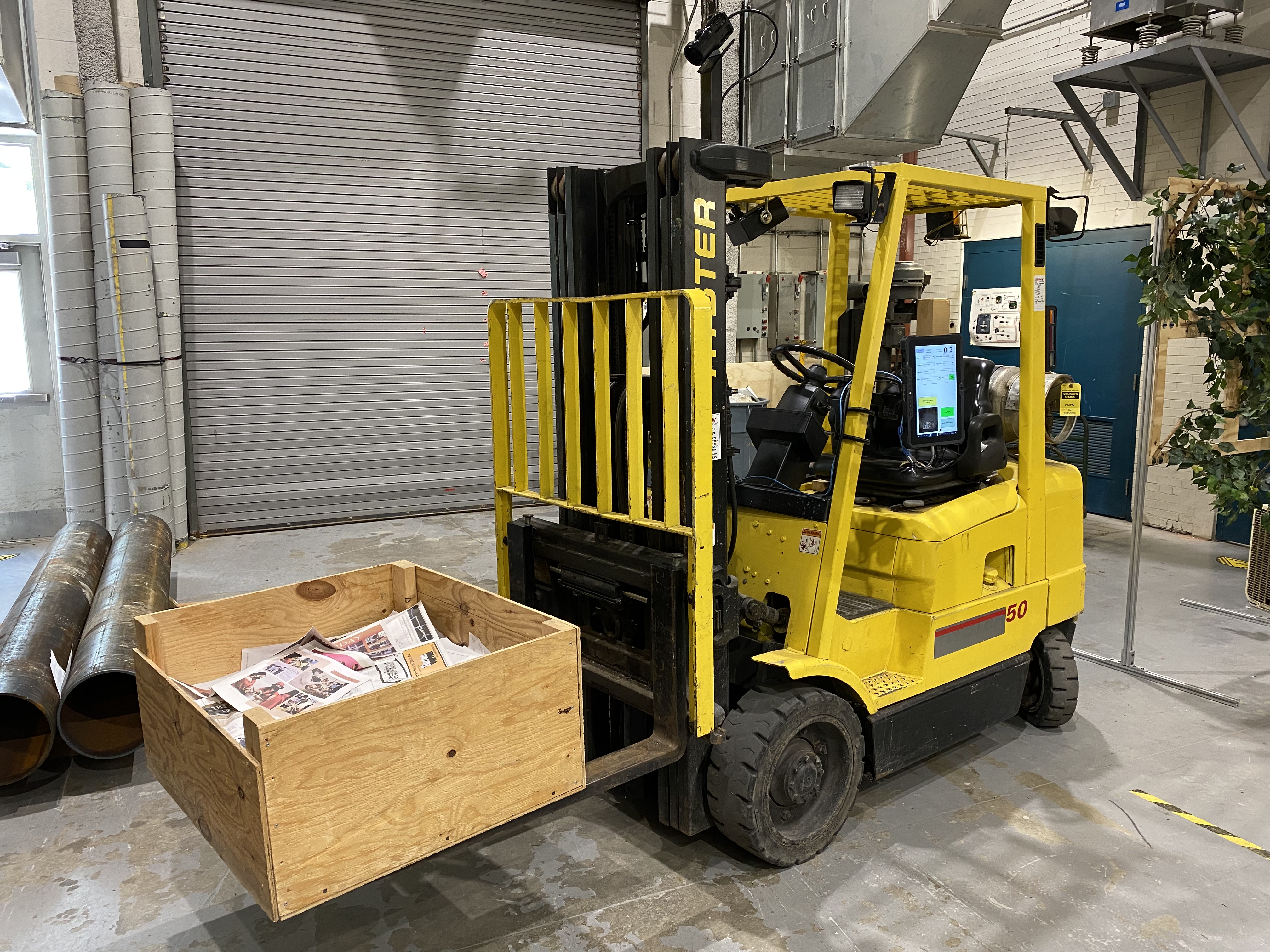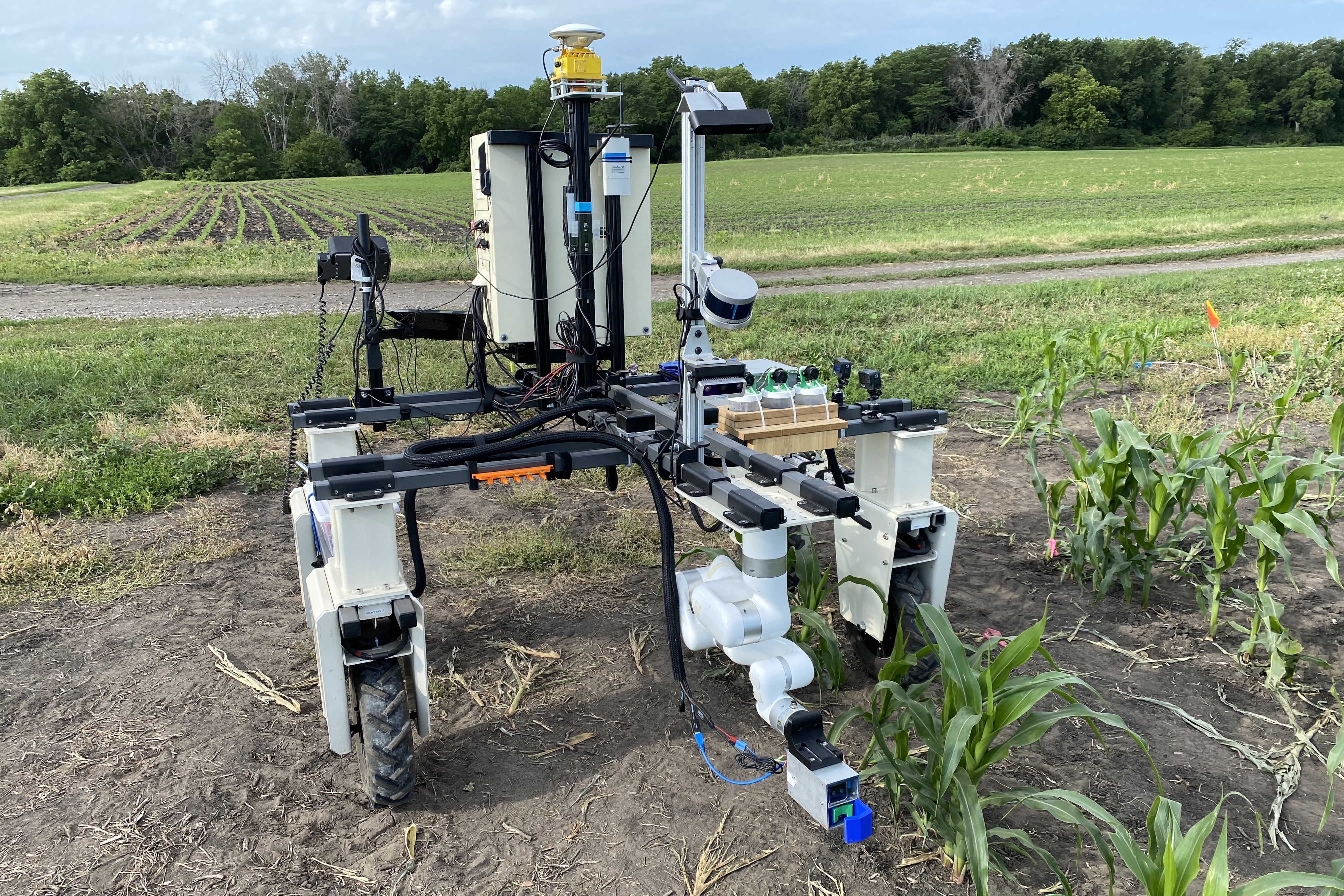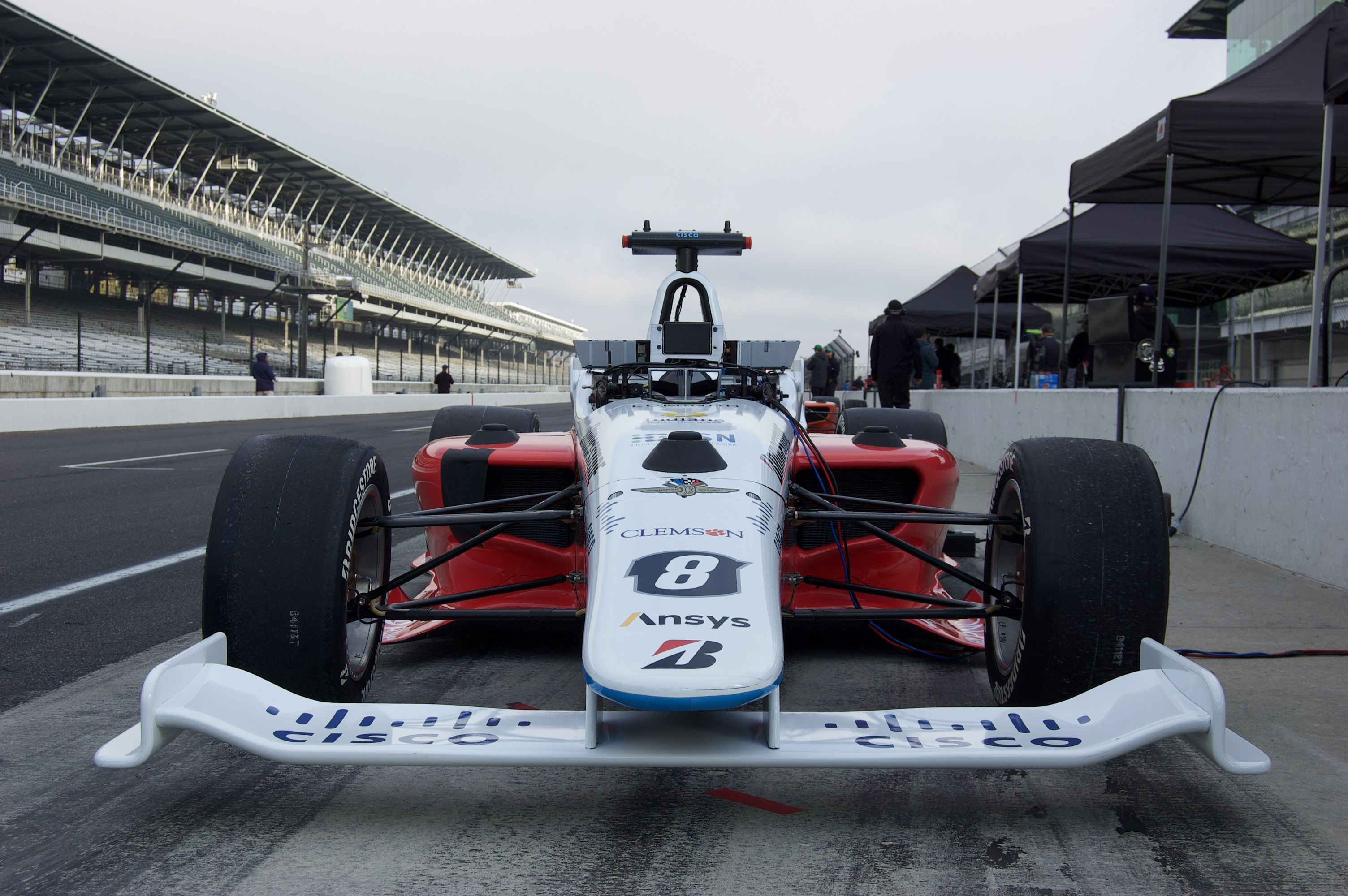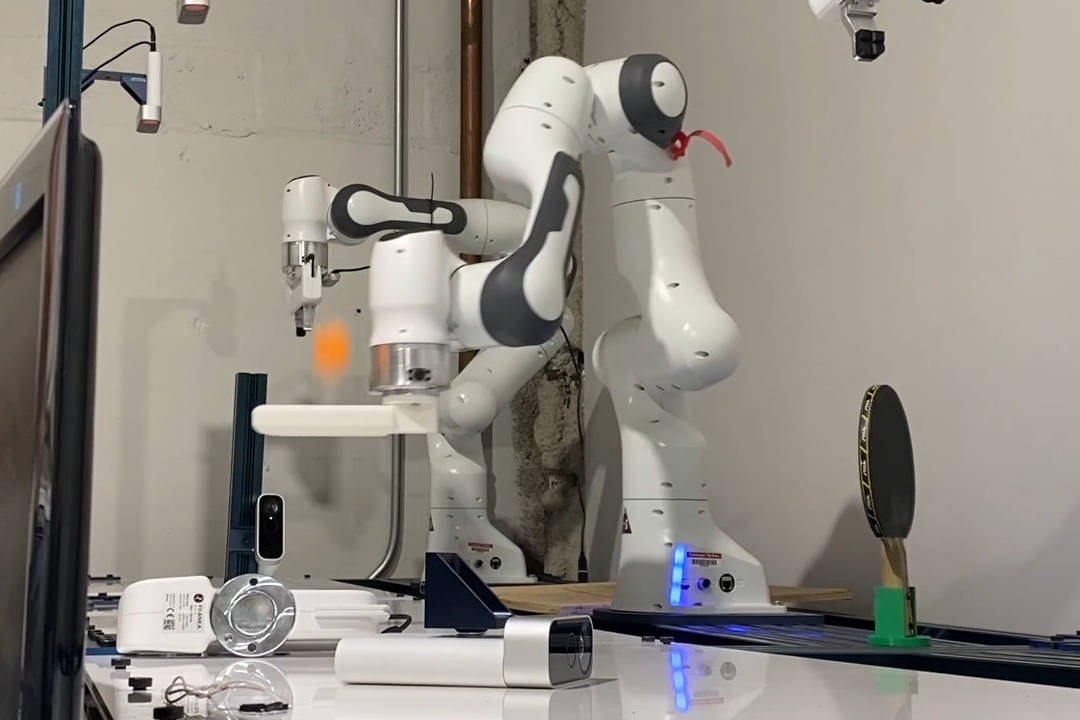Biorobotics Lab
May 2021 - May 2023
 A forklift equipped with a camera and tablet to classify and track materials in a recycling facilityThe Biorobotics lab is a research group at Carnegie Mellon University that focuses on application and often draws from biology to find creative solutions. The lab's research covers many applications, such as industrial inspection, surgery, and recycling. I had the opportunity of working at the Biorobotics lab for two years as an undergraduate and full-time research associate, ultimately sparking my interest in sustainability in robotics.
A forklift equipped with a camera and tablet to classify and track materials in a recycling facilityThe Biorobotics lab is a research group at Carnegie Mellon University that focuses on application and often draws from biology to find creative solutions. The lab's research covers many applications, such as industrial inspection, surgery, and recycling. I had the opportunity of working at the Biorobotics lab for two years as an undergraduate and full-time research associate, ultimately sparking my interest in sustainability in robotics.
I originally joined the Biorobotics lab in the summer of 2021 while participating in the Robotics Institute Summer Scholars program (RISS), where I worked on SLAM for legged robots. It was a great opportunity to learn about the research process from highly experienced mentors.
After the conclusion of RISS, I continued working at the Biorobotics lab as an undergraduate research assistant while finishing my degree at Pitt. I began to work on a project which aims to classify and track materials moving throughout a recycling facility to help make more efficient decisions and process more recycled material. Only a portion of the incoming material is visible, which creates the challenge of classifying material and making decisions under uncertainty. We deployed technology in a recycling facility and spoke directly with the users to design a better system. This project was a rewarding experience that introduced me to the design and integration of new robotic systems.
After completing my undergraduate degree, I wanted more research experience, so I continued working at the Biorobotics lab full-time. After I started, I took on another robotic recycling project, this time with e-waste. The project aimed to build an e-waste recycling facility to classify known and unknown e-waste devices and adapt its process to safely disassemble and recycle the products quickly and accurately.
I worked on the classification and segmentation networks to distinguish known and unknown e-waste devices and prepare them for disassembly. One of the significant challenges of this project was addressing the similarity that many e-waste devices share (logos, cameras, colors, etc.). We took this as an opportunity to explore contrastive learning to separate similar devices in the latent space so that they can be more accurately classified. Another challenge was collecting enough data to train and test robust networks. The data scarcity forced us to create pipelines that generate synthetic data and heavily augment the real data to ensure that the networks generalize well. We also considered how the networks could adapt using continual learning as new devices are released and enter the recycling stream.
After some time working on the robotic recycling projects, I took a larger role. I worked with undergraduates and new graduate students to acquaint them with the projects. I also got to work with the post-docs and graduate students to set goals and plan tasks for the software sides of both projects. I enjoyed taking a leadership position on these projects, and I plan to seek out these positions in the future.
I gained a lot of experience and worked with many smart and kind people while at the Biorobotics lab. I left the lab in May 2023 to pursue a Master's of Science in Robotics Systems Development at Carnegie Mellon University. I greatly appreciate the opportunity to work at the Biorobotics lab as it introduced me to sustainability in robotics and let me explore the real world application and integration of robotics.


